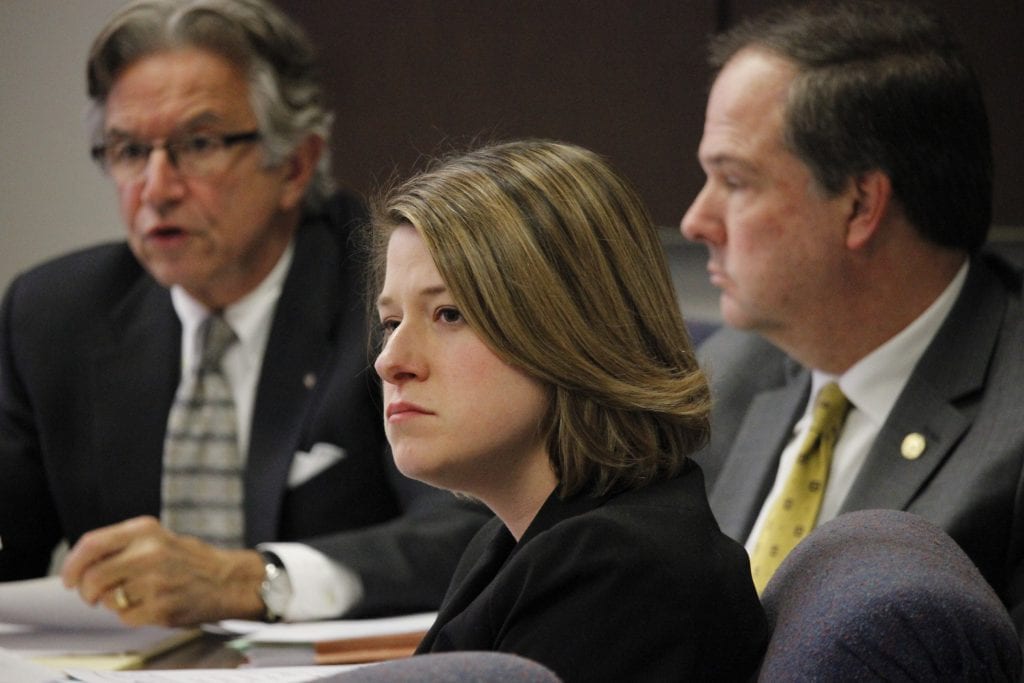St. Louis County voters will decide in November whether the County Council should have its own attorney.
Council members voted 4-3 on Aug. 27 to place the measure on the Nov. 5 ballot. If approved, the council would have the authority to hire external attorneys for legal counsel, represent members in lawsuits related to their official duties and enforce subpoenas.
The measure was sponsored by Council Chairwoman Shalonda Webb, a Democrat representing the 4th District.
Up until the meeting, it was unclear whether the measure would pass. Third District Councilman Dennis Hancock, R-Fenton, one of the bill’s supporters, had been barred by a judge from his duties as a council member due to nepotism allegations. However, another judge ruled during the meeting that Hancock could resume serving.
Sixth District Councilman Ernie Trakas, R-Oakville, opposed the bill for a “litany” of reasons, including concerns about whether the ballot language would hold up in court.
“I am going to oppose this bill for a whole host of reasons. The litany is long and distinguished about why the ballot language is not just confusing and misleading, it is flat-out wrong,” Trakas said. “I do believe … this bill will result in a lawsuit being filed against the county, and the county will lose.”
At the Aug. 20 council meeting, Trakas said the bill “did nothing” to preserve the separation of powers, arguing it “does the opposite.”
“It concentrates power into what would become a star chamber, to be polite about it. … This is a lost cause,” he said.
Council members who voted in favor of placing the measure on the ballot were Hancock; Webb; Councilwoman Rita Heard Days, D-1st District; and Councilman Mark Harder, R-7th District. Those opposed were Trakas, Councilwoman Kelli Dunaway, D-2nd District; and Councilwoman Lisa Clancy, D-5th District.
Webb’s proposal differs from one adopted in 2019, which split the county counselor’s office into three branches representing the executive, legislative and judicial branches. All of those attorneys were under the authority of the counselor, who is appointed by the county executive. Any attorney hired under the new ballot measure, if passed, would not be under that authority.



